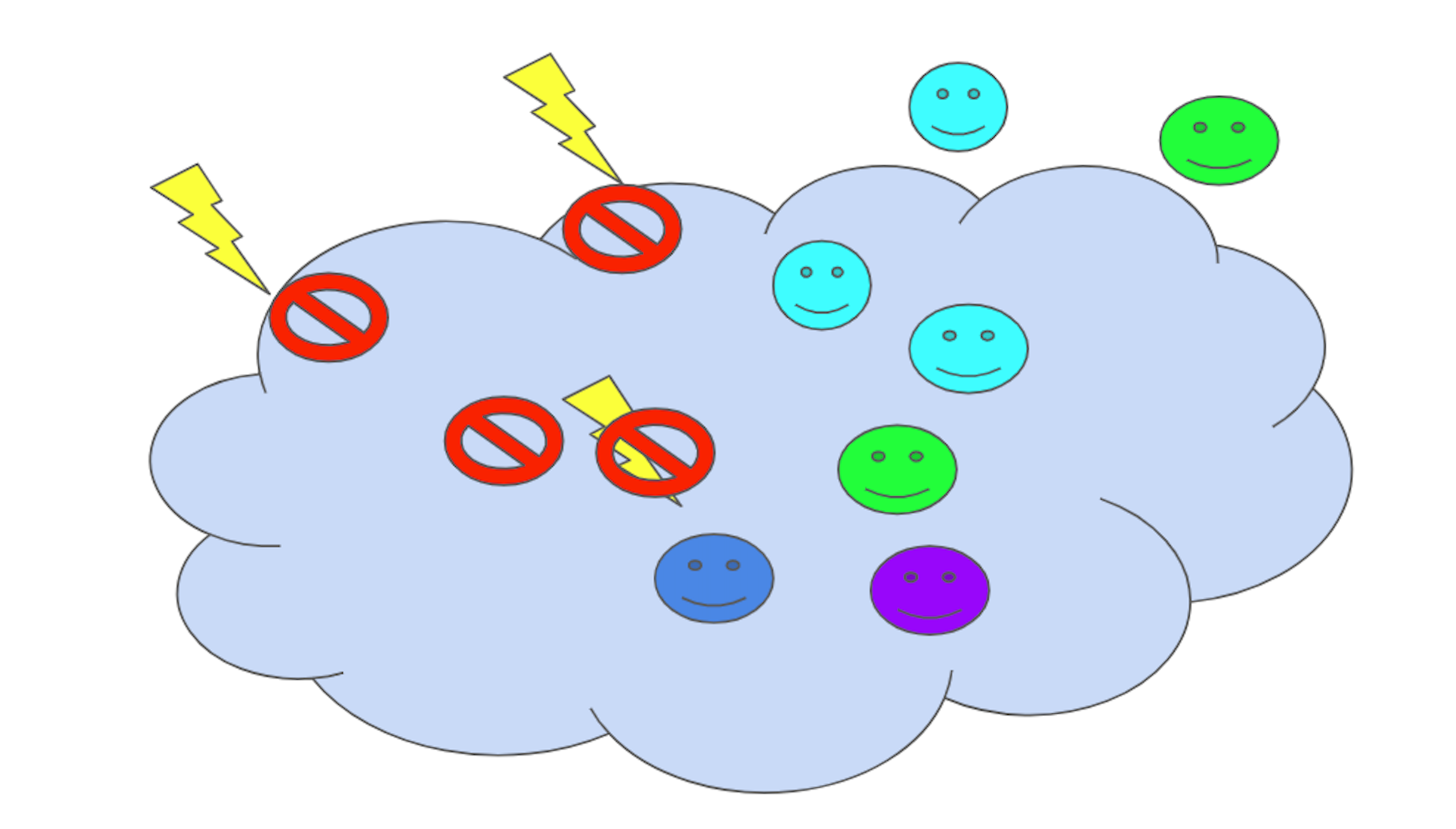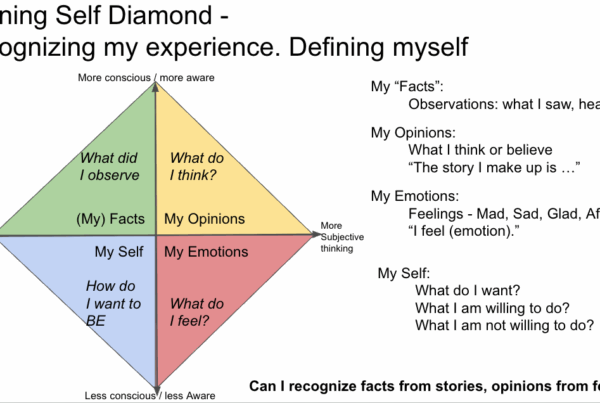
The Immune System defines self
Nature has a way of defining the physical self for all organisms via the immune system. Evolution built our immune system to recognize non-self from self. Accordingly, mechanisms like the immune system are the root of the physical self defining itself to other organisms. What can we learn about defining self from our immune system?
Dr. Bowen borrowed the term “differentiation” from biology because he believed it represented what individuals need to do at an emotional and psychological level. The immune system’s function is to recognize behaviours of another organism that impinge upon the self. For this to occur, the “self” has to recognize what behaviour it considers impinging or not. It follows a model of “no bad actors in our house.”
Defining Self versus Other
The immune system has a process of recognizing self parts and non-self parts throughout the body. Basically, the immune system recognizes and destroys non-self items, like viruses and bacteria that impinge on self. This is where autoimmune diseases come into play – the stop-harm-to-self gets impaired. The normal level of functioning becomes dysfunctional. One could say that the body is under-functioning because it doesn’t stop the self-harming mechanism.
It is truly an under-functioning process whereby the body cannot exercise the normal process of recognizing self-harming elements and then destroy them. By not being able to recognize self from non-self, by not having clear boundaries, it works against itself.
Learning to Define a Self
The design of the immune system is to learn and remember what belongs in the house and what doesn’t. It can recognize strangers (and self-harming behaviour). Nature is often pretty brutal, and the immune system functions in a quite reactive manner. Anything in the house that doesn’t belong gets destroyed and eliminated. To be fair, these “guests” are basically trying to move in and take over everything, which will destroy the house. Like invasive plant species, they grow and destroy what’s there. Or an irresponsible friend that moves in and eats all your food, never cleans up and sells your stuff on eBay to buy stuff for themself. Eventually, it’s all them and none of you.
Defining a self at the immune system level is something that evolved. The better at defining a self the body is, the more healthy its host will remain. This optimizes the body’s function. If the immune system under functions, this could lead to chronic impairment or a shorter lifespan. But as we have learned, the immune can over-function and attack the body where it shouldn’t. It overreacts and loses sight of self versus non-self.
When the body gets a new virus, it can’t define itself at first, and the virus moves in and replicates by using your body’s molecules. Once the immune system recognizes what’s going on, it defines self by creating an antibody response and which allows the body to recognize self from non-self and act accordingly.
Defining a Self is an Active Process
Defining a self is an active process. A healthy body, a well-functioning immune system, only gets as reactive as it needs to. As we have seen with Covid, the body can overreact, which has led to serious aspects of Covid as a disease.
I believe that nature conserves effective processes and adapts them for new purposes. Even bacteria have an immune system to ward off infections from bacteria infecting phages. Nature has conserved this process across the tree of life over hundreds of millions of years. What are the principles to be learned from how the immune system defines self?
1. Self has to have a clear definition of what self is. A conviction for what it will tolerate and won’t tolerate.
2. Self has to recognize things it won’t tolerate from things it will tolerate.
3. Self has to have a consistent, effective response to things it won’t tolerate
4. Self might temporarily impair itself while dealing with non-self
5. Self can’t avoid the investment and effort required to maintain self.
What’s Good for the Self is Good for the Body
Finally, if defining self at a physical level is good for us, isn’t defining self at a nonphysical (aka psychological self) level also good for us? Don’t the two support each other? Do your immune system a favour – work on defining self!
Thank you for your interest in learning more about systems.
Dave Galloway
To learn more about Bowen Theory, click here.
For a video series by Dr. Bowen: Bowen Basic Series
The articles that inspired this post:
https://www.science.org/doi/10.1126/science.add2897
https://en.wikipedia.org/wiki/Self-protein.


